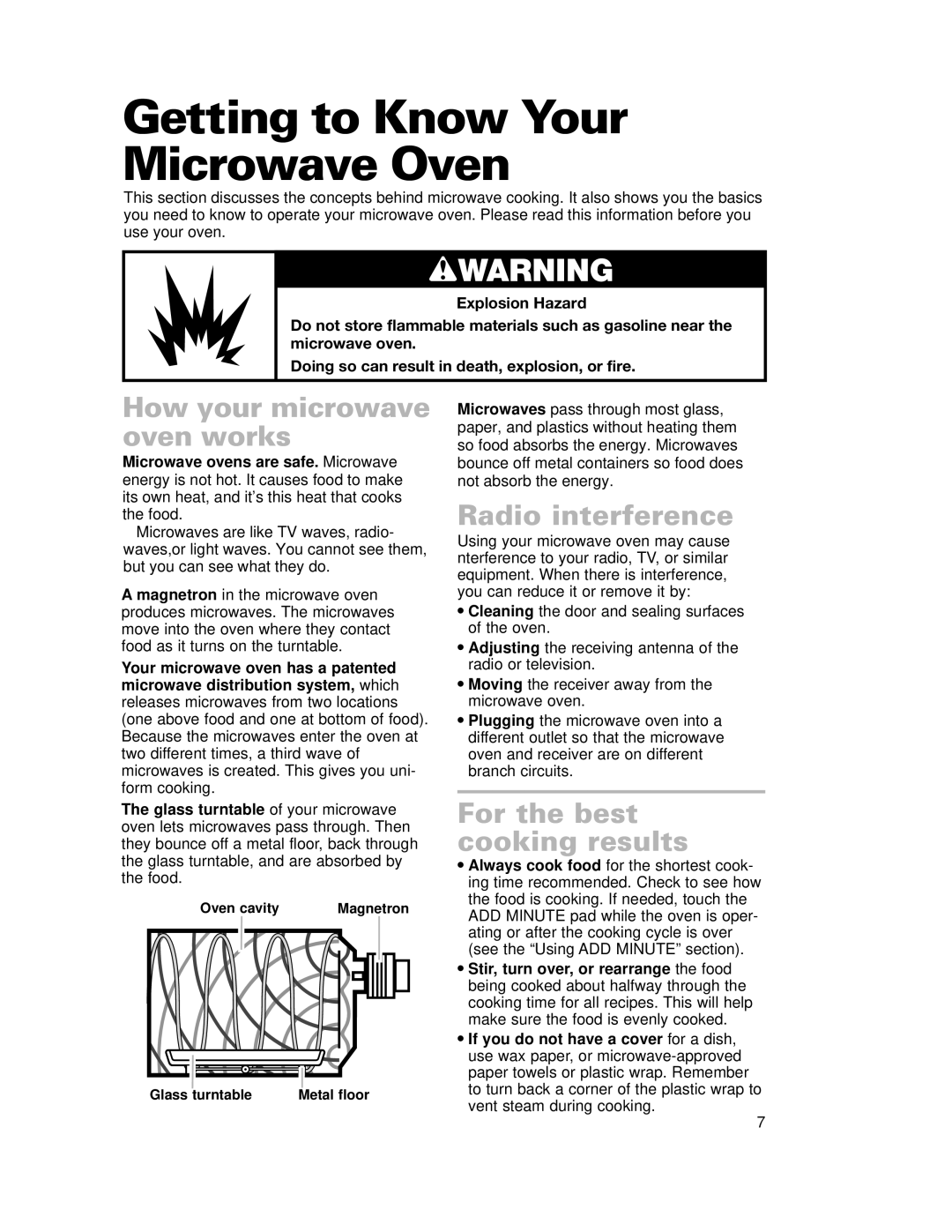
Getting to Know Your Microwave Oven
This section discusses the concepts behind microwave cooking. It also shows you the basics you need to know to operate your microwave oven. Please read this information before you use your oven.
wWARNING
Explosion Hazard
Do not store flammable materials such as gasoline near the microwave oven.
Doing so can result in death, explosion, or fire.
How your microwave oven works
Microwave ovens are safe. Microwave energy is not hot. It causes food to make its own heat, and it’s this heat that cooks the food.
Microwaves are like TV waves, radio- waves,or light waves. You cannot see them, but you can see what they do.
A magnetron in the microwave oven produces microwaves. The microwaves move into the oven where they contact food as it turns on the turntable.
Your microwave oven has a patented microwave distribution system, which releases microwaves from two locations (one above food and one at bottom of food). Because the microwaves enter the oven at two different times, a third wave of microwaves is created. This gives you uni- form cooking.
The glass turntable of your microwave oven lets microwaves pass through. Then they bounce off a metal floor, back through the glass turntable, and are absorbed by the food.
Oven cavity | Magnetron |
Glass turntable | Metal floor |
Microwaves pass through most glass, paper, and plastics without heating them so food absorbs the energy. Microwaves bounce off metal containers so food does not absorb the energy.
Radio interference
Using your microwave oven may cause nterference to your radio, TV, or similar equipment. When there is interference, you can reduce it or remove it by:
•Cleaning the door and sealing surfaces of the oven.
•Adjusting the receiving antenna of the radio or television.
•Moving the receiver away from the microwave oven.
•Plugging the microwave oven into a different outlet so that the microwave oven and receiver are on different branch circuits.
For the best cooking results
•Always cook food for the shortest cook- ing time recommended. Check to see how the food is cooking. If needed, touch the ADD MINUTE pad while the oven is oper- ating or after the cooking cycle is over (see the “Using ADD MINUTE” section).
•Stir, turn over, or rearrange the food being cooked about halfway through the cooking time for all recipes. This will help make sure the food is evenly cooked.
•If you do not have a cover for a dish, use wax paper, or
7
